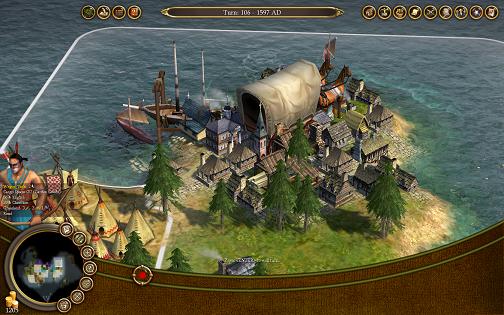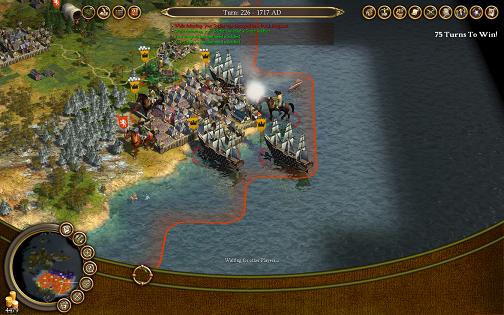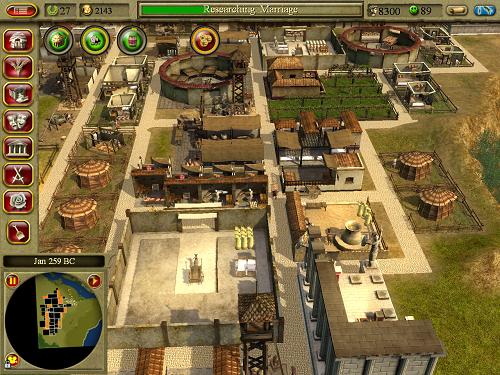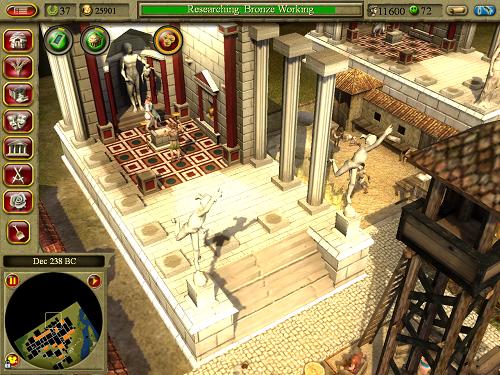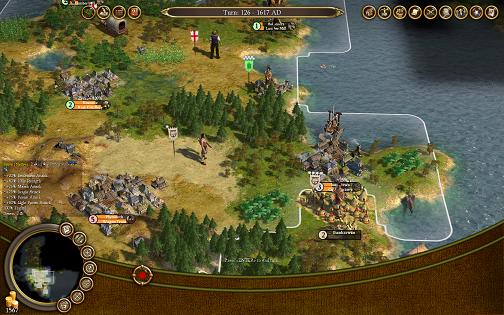
Colonization is another one of the games that 2K Games sent me a while back but I’ve only just gotten around to checking it out. Its complete title is Sid Meier’s Civilization IV: Colonization which is quite a mouthful. This is because it is a remake of the original Colonization from 1994 using the Civilization IV engine. The original game is considered one of the great classics published by Microprose back in the day and one of the rare few that I missed out on playing. As such I’m particularly glad to have to have the chance to play this updated version.
In this game, the player takes control of settlers from one of four European nations who must found a colony in the New World. There you have to contend with not only the native population, but also the colonies of the other European powers. The object of the game is to grow the colony into a powerful nation in its own right and eventually become strong enough to declare independence from your mother nation and defeat its forces. Contrary to expectations however, Colonization is not a 4X game in the traditional sense, but an economics and logistics management game.
As such, gameplay in Colonization feels more similar to a city builder like The Settlers than any game in the Civilization series. Your colonists, each of whom can be individually named, can be tasked with various jobs, including gathering raw resources, processing them, preaching in churches to attract more colonists from Europe or constructing buildings. Colonists outside of a settlement can be assigned a job as a pioneer capable of building roads or tile improvements by equipping them with tools. Similarly, any colonist can be turned into a soldier by giving them guns.
While any colonist can be assigned to any job, some have skills that make them dramatically better at some jobs, so a big part of the game is shuffling colonists around to places where they can do the most good. Furthermore, since it is far more lucrative to export processed goods, like cigars and cloth, instead of the tobacco and cotton raw materials, it’s in your interest to build up the infrastructure to support these higher value industries. This raises the cash necessary to buy the weapons, ships and most importantly, skilled colonists, that you’ll need to win.
My initial impressions on this game are, frankly, not that good. For one thing, it’s an extremely micro-management intensive game. Most of your time is spent checking on the inventories of different materials in each of your settlements and transporting them around in wagon trains. There’s also not much combat in this game until the endgame phase as it’s usually easier to achieve your aims through peaceful trade. Finally, I have doubts about the game’s longevity since there are only four different European nations to choose from and I suspect that most games will turn out more or less the same. There aren’t even any scenarios to spice things up a little. Anyway, I still haven’t managed to win a game yet, so I’ll hold off on my conclusions until then.
